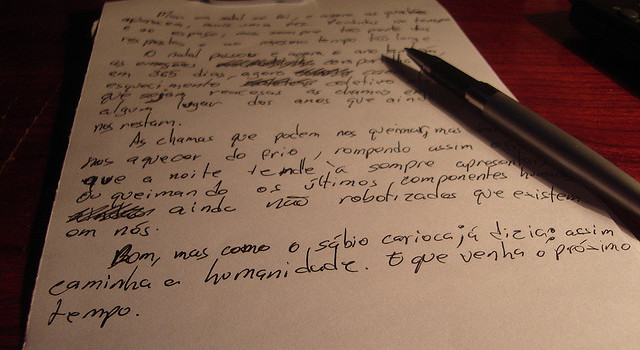5 Tips For Professional Writers – How To Add Humor To Your Writing

Humor in writing is often thought of either representing satire or as a part of fictitious writing. But professional writers can use humor effectively to keep the reader engaged and wanting to read further. Humor can help you bond better with your readers too, serving as an awesome communicating tool. So, it can be used very tactfully to make the writing interesting and happy. Here are 5 tips for professional writers which will help in adding an element of comedy in their writing:
1. Use A Funny Idea After Citing A Pair Of Genuine Ones
The reader gets a thrill and a grin when he is suddenly led to a funny idea, especially when he was not expecting it. Humor can be in the punch line which you can suddenly shoot in after talking about a couple of serious issues. For example, writing about parenting, “Having one child makes you a parent; having two – you are a referee”! Another humorous one-liner about marriage could be “Don’t marry the person you want to live with, marry the one you cannot live without, but whatever you do, you’ll regret it later”. Such comical and amusing twists in the writing often leave the reader smiling and impressed, tempted to read on.
2. Keep It Subtle
Don’t confuse the reader by representing yourself as a comedian, unless you are really writing something, which is supposed to be entirely funny! Let’s understand the aim of including comedy in writing. It caters as a tool for enhancing the quality of writing. A funny phrase or a humorous metaphor is sure to catch the reader’s attention. So, use it sparingly and convincingly. Organize your comedy well into the matter. It should not be used deliberately anywhere, just for the sake of using it. A funny sentence or one-liner should adjust well with the natural flow of the writing style.
3. Use Real Life Stories Or Anecdotes
The most natural jokes are the ones which we come across in real life. Recall such fun-filled moments from your life when you had a hearty laugh or something that made it hard for you to control your smile. Your readers will immediately relate to the comedy when you give it to them in the ‘real’ sense. If you don’t want to be satirical and offending to the reader, be careful that you do not make fun of anybody else. Instead, present yourself as the object of fun. Write about funny anecdotes that revolve around you and your family, friends, pets. The reader finds it easier to laugh at your personal experiences and welcomes a comic moment amidst serious reading.
4. Play With The Cliché
A cliché is an expression which was thought to be crisp and clever previously, but now its overuse has made it boring and mundane. Humor writers can use surprising interpretations of clichés to fill the reader with laughter. For example, an old teacher never dies; they simply lose their class. Overdoing clichés is also a bad idea as the writer presents as being desperate about getting funny. Puns and ironies, metaphors are some tools which can come to your rescue when you want to intelligently make a cliché outrageously amusing.
5. Scan Your Dictionary For Just The ‘Right’ Word
There is always a right word to express your opinion accurately while writing. It might not always strike your mind with the correct timing, when you want to pitch in a humorous note. So, keep your Dictionary handy and search for synonyms. You will definitely come across a word which seems loud enough, sufficiently funny and extremely hilarious. For instance, ‘strange’ sounds ordinary, but ‘outlandish’ is more impressive. The use of puns has been meticulously done by many famous funny writers.
Make your writing ridiculously amazing by including a bit of humor at such a point where the reader might not have expected it at all. You can use a variety of humor tools to spice up your writing and gain the reader’s attention by spreading smiles with your words.
Photo by Eduardo Quagliato, CC BY 2.0